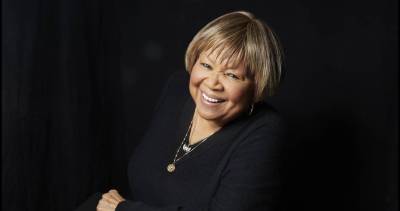Capote's voice vexed actor Toby Jones
TORONTO””One of the most surprising things about meeting actor Toby Jones is hearing his voice. In the movie Infamous, the latest biopic about iconic American writer Truman Capote, Jones delivers Capote's trademark high-pitched, effeminate voice so convincingly you can't imagine him speaking any other way. And yet, as he sits back relaxed during our interview in a Toronto hotel room, Jones speaks with a British accent, and his voice is masculine and of a medium timbre.
Getting the voice right did take a lot of work, he admits. “It's fantastically interesting work though, because it's technical and it's also speculative. It's technical because you're trying to get your jaw right, watching the shapes he's making with his mouth [in archival footage], noticing what he does with his hands when he speaks””that whole gestural, physical vocabulary that is tied to the voice. But then there's the speculative research where you're trying to work out how and why did this freakish voice come into being? It's both amazing and nerve-racking as an actor.”
Infamous (opening Friday [October 13]) is the second film about the life of Truman Capote to premiere at the Toronto International Film Festival in the last two years. The first one, Capote, earned actor Philip Seymour Hoffman an Academy Award for his performance in the title role, not to mention a trophy room's worth of other awards and nominations. But Jones says he's not intimidated by the success of that other Capote film. “I think there's room for two different performances because Capote's such a compelling personality. People seem to really love our film and they're saying that it's different enough to enjoy it in a whole new way.”
But Jones will just have to take their word for it””at the time of this interview he hadn't seen Capote. “I knew people would ask me to compare the two films,” he says. “It's up to you to make the comparisons.”
On the surface, the two films are similar. Both cover the same six-year period of Capote's life””from when he travelled to rural Kansas to research the murder of a small-town family for his book In Cold Blood through to his controversial relationship with the murderers, and their eventual hanging for the crime. Both films focus on the writer's psychological trajectory: his early excitement about the project, and his decline as a result of whatever transpired between him and one of the murderers””Perry Smith””in a Kansas prison. But just as no one really knows the origin of Capote's freakish voice, the truth about what happened in that jail cell died along with the murderers and with Capote himself (he passed away in 1984), which allows two films to take very different approaches to the same story.
Capote is more linear, telling the story in a straightforward way, from the peak of New York society to the depths of despair. Infamous, by contrast, takes a multifaceted view. The film is based on George Plimpton's 1977 oral biography Truman Capote: In Which Various Friends, Enemies, Acquaintances, and Detractors Recall His Turbulent Career, which, as the title suggests, examines Capote's life through various accounts.
The film uses faux documentary elements””re-created interviews””to illustrate the various points of view on the man's life. “The Plimpton book shows you these conflicting reports of why certain things happened and how they happened,” Jones says. “We realize that this apparently confident person is a mass of contradictions and conflicting stories. I think the documentary...seems to ask the question, Can you talk objectively about anyone's life?”
Which, according to Jones, is where his work as an actor begins. “No one knows what Capote was like when he was on his own,” he explains. “Just like I don't know what you're like when you're on your own and you don't know what I'm like when I go back to my hotel room. When we're on our own in our bedrooms and we look in the mirror””which specifically happens in the film””the mask falls apart. And that side of it is what is interpreted in this movie. We all know what it feels like to perform in life””to be polite, to be witty, to try and please people...
“I think our film is just as much about biography””all biography””as it is about Truman's life,” he continues. “It's the story about Truman writing someone else's story. He thinks he can go in and find out objectively why Perry Smith did what he did. And the fact of the matter is that he can't, just like you can't do that about anyone. We learn he can only get inside the person through revealing something about himself.”















Comments